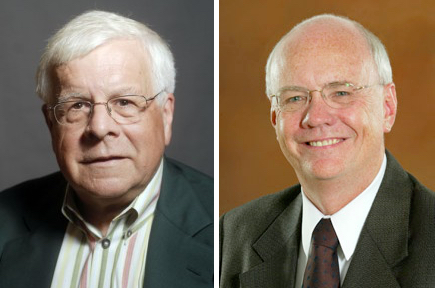Market-based approach will best protect the Straits from spills
With the 2014 elections over, Michigan lawmakers can no longer ignore the ticking time bomb of Michigan’s oil and gas pipelines. This aging statewide pipeline network threatens our multi-billion-dollar fishery, boating and tourism industries, not to mention 20 percent of the world’s fresh water.
The disastrous Kalamazoo River spill should remind us what happens when an oil pipeline bursts. Enbridge Energy Partners’ pipeline break (Line 6B at Kalamazoo) cost over $1 billion to clean up, and its 61-year-old Line 5 pipeline that crosses the Straits of Mackinac and Lake Huron between Lake Huron and Sarnia, poses an even greater threat to our priceless Great Lakes.
A task force created this year, headed by Michigan Attorney Bill Schuette and Department of Environmental Quality Director Dan Wyant, is charged with studying the pipelines transporting petroleum around the state. We expect they will look at such government-centered options as requiring double-wrapped pipelines, increasing Coast Guard and emergency-response funding, or perhaps more government monitoring of underwater pipelines. However, we do not expect that they will order the replacement or removal of these aging pipelines, which is the only sure way to dodge the threat of an environmentally disastrous oil spill into the Great Lakes.
We suggest the state instead consider a more market-based approach, such as a modified two-tiered liability model suggested by Profs. W. Kip Viscusi of Vanderbilt and Richard Zeckhauser of Harvard. Instead of further regulating the potential polluter (in this case Enbridge), Enbridge instead would sign an agreement with the state that they would be solely and strictly liable for any spill caused by their pipeline. This agreement would put the financial burden of responsibility, as well as the economic incentive, to protect the Straits pipeline on Enbridge itself.
It would avoid Enbridge passing the liability buck in case of a spill, and also puts the responsibility for safety and costs clearly in the company’s hands. We would also suggest an annual tax to be paid to the state Natural Resources Trust Fund to cover potential catastrophic risks beyond the financial capabilities of Enbridge.
We feel this approach – short of shutting down the pipeline altogether – would be a more effective economic and political way to control unknown risks than solutions, if any, likely to arise from the task force findings. Setting up such an agreement prior to a spill minimizes the politics that otherwise would occur after a spill occurs, provides a long-term incentive for Enbridge to maintain pipeline safety without the need for a large-scale state regulatory presence, and saves the state considerable expenses in terms of additional emergency response funding and staff oversight expenses.
We would argue that the state should negotiate such a private agreement with Enbridge, and that doing so would be consistent with the terms of the 1953 easement that the state granted to Enbridge in order to place the Line 5 pipelines under the Mackinac Bridge. Since Enbridge professes that the chance of such a spill is remote, let them back their words with their corporate checkbook.
The bottom line might very well be that, after fully calculating the enormous cost of a possible catastrophic event at the Straits, Enbridge may on their own determine that re-routing much of the oil now travelling through Line 5, building a newer and safer pipeline across the Straits to reduce the risk of a spill, or even closing the Straits pipeline altogether might be the wiser choices than the status quo. But this decision would be market-based rather than government imposed.
If Enbridge decides that closure is in their own economic interests, such a market-based decision should please both anti-regulation lawmakers and environmentalist alike.
See what new members are saying about why they donated to Bridge Michigan:
- “In order for this information to be accurate and unbiased it must be underwritten by its readers, not by special interests.” - Larry S.
- “Not many other media sources report on the topics Bridge does.” - Susan B.
- “Your journalism is outstanding and rare these days.” - Mark S.
If you want to ensure the future of nonpartisan, nonprofit Michigan journalism, please become a member today. You, too, will be asked why you donated and maybe we'll feature your quote next time!


 Ken Winter, left, teaches at North Central Michigan College and is former editor and publisher of the Petoskey News-Review. James Hill is a professor at Central Michigan University and a former Michigan Natural Resources Commissioner.
Ken Winter, left, teaches at North Central Michigan College and is former editor and publisher of the Petoskey News-Review. James Hill is a professor at Central Michigan University and a former Michigan Natural Resources Commissioner.